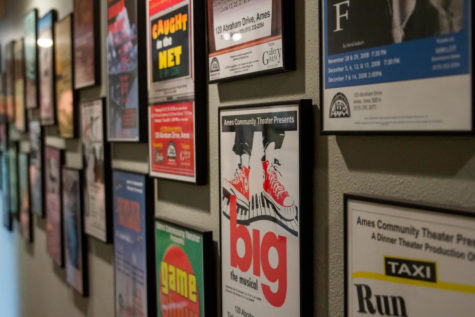Move-in causes craziness
June 21, 2010
Moving to college can be one of the most hectic days at college, so how does one cope with the craziness?
Questions arise. What time do I move in? Who brings the television and refrigerator? Do I need to need to bring carpet? These are all valid questions and they all have answers.
There are more than 4,000 students that move in during a period of 48 hours. With that many students moving in, stress levels tend to be much higher than normal. So, it is wise to get there early in the morning. Stress levels are also dependent on the ever-changing weather. The most perfect conditions rarely happen in August. If it is rainy then tempers flare, especially if the elevators are packed and you live on the seventh floor. If you live on a floor that is closer to the main floor, use the stairs. The elevators have a tendency to get backed up.
It is also good to have everything organized, so that when you arrive you can move everything in as efficiently as possible. Loading zones around dorms are only 30-minute parking, plus it keeps things moving smoothly.
“When moving in come with relaxed expectations,” said Pete Englin, director of the Department of Residence. “The process should be fun, but it’s not just the move-in process, it’s a change in the relationships with students and families. It’s the process of saying good bye and the staff and I want it to be a good transition.”
Before the process of moving happens, decisions have to be made. Who brings what appliance or piece of furniture?
With Facebook and text messaging, the communication process has become easier. It is a good thing to contact your roommate/s and come to an agreement about bringing things such as refrigerators, microwaves, carpet, couches, chairs, televisions and the game system of choice.
Lines of communication should also be used when deciding the layout of the room.
What kind of lofts are you both going to get? Which roommate gets which bed? Where will the couch or futon be placed? These are questions that need to be asked before the move-in day.
After you move in and get settled, there are community advisers on each floor to help solve problems. They are students who went through similar scenarios. They are there to help with the transition and to settle any disputes. Usually there is a roommate contract passed out during the first day or week of residency.
There are instances where roommates just cannot get along with each other. When problems arise community advisers try to help.
“When a problem arises we get the roommates together and let each of them tell their side of the story. We try to work with the individuals to reach agreements. One chooses to move out if they aren’t able to handle their roommate,” said Maple Hall Community Adviser Josh Ster, sophomore in performing arts.
“Sometimes roommates have been best friends all their lives and learn that they dislike each other, and sometimes a total stranger becomes a life-long friend. It comes down to two people committed to making it work,” Englin said.
CAs help students with the transitions by posting events on campus and with various groups. CAs are there as a resource.
There are various positions that can be held to become involved on the floor. President, vice president, treasurer and intramural coordinator are some positions. Being president has its perks, you may have the ability to park in the front row.
Basically, the best way to survive move-in day is to communicate with the roommate, come early and organized while keeping a relaxed mentality. CAs are a resource and are there to help. And don’t forget those tissues, because there may be many happy and sad tears flowing.
















